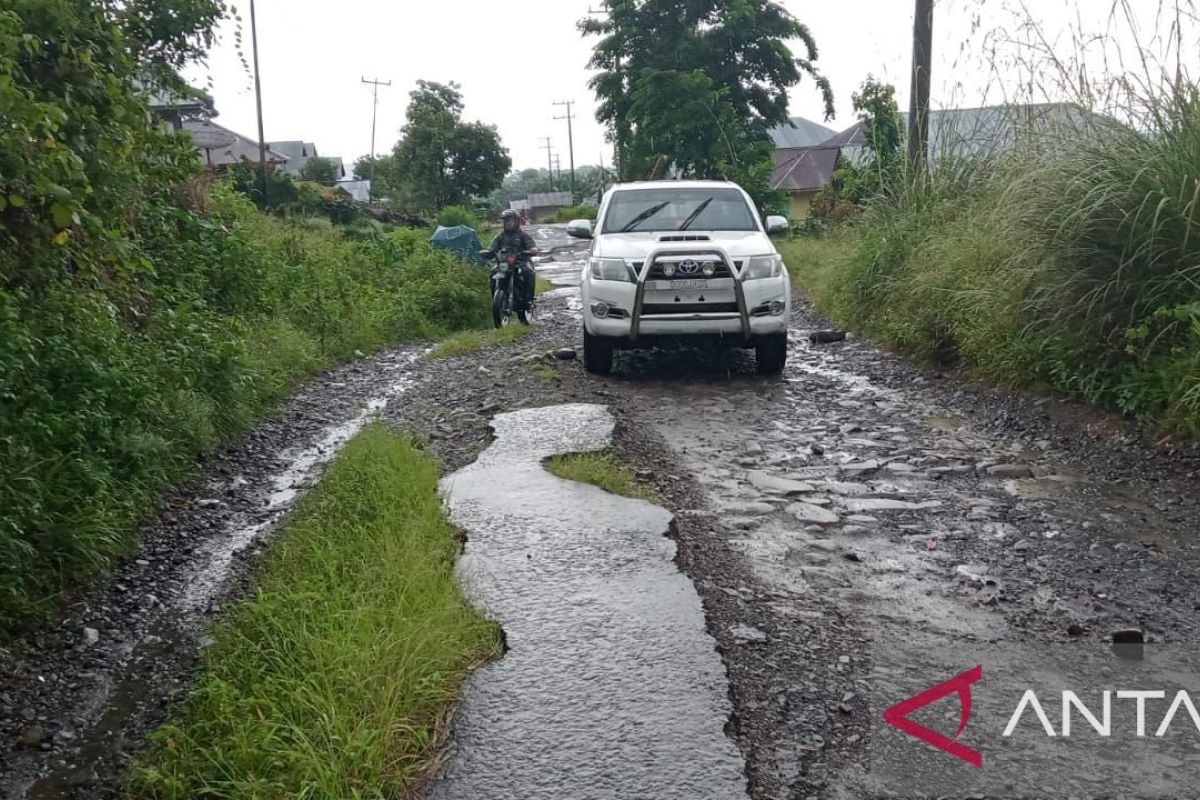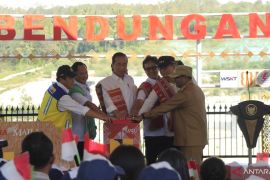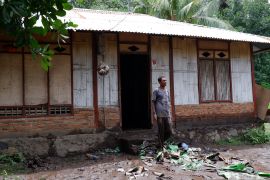
NTT government built 947.16 km of road in five years

...In fact, NTT became the third-best province in the field of road construction in the implementation of roads for the local government category, so it won a prize in the form of two units of excavator equipment, Governor Viktor Bungtilu Laiskodat r
Kupang (ANTARA) - The East Nusa Tenggara (NTT) Provincial Government has built roads, measuring 947.16 kilometers (km) long, under the authority of the NTT government, for five years to facilitate access to transportation for people in remote areas.
"For five years, the government has realized the construction of roads spanning 947.16 km in 22 districts and cities in East Nusa Tenggara Province," Governor of NTT Viktor Bungtilu Laiskodat noted in Kupang, Friday, while speaking in connection with the realization of road construction in NTT.
Citing data that he held, Laiskodat remarked that the roads, measuring 2,650 km in length, come under the NTT government's authority, and heavy and light damage had occurred on 906 km of road.
He noted that the NTT government is gradually starting to build roads in the districts and cities, so that the construction of roads, with a length of 947.16 km, can be realized during the 2019-2023 period.
The governor highlighted that the realization of road construction by the NTT provincial government exceeded the set target of 906.5 km.
According to Laiskodat, in 2023, the NTT Government is focusing on completing the construction of 247.45 km of roads that are currently under construction.
"The achievement of road construction is certainly not easy because the roads that are built generally cross rough terrain, so it requires a lot of time and effort," the governor explained.
Laiskodat stated that as a mark of appreciation from the Central Government, NTT had obtained two units of excavator equipment, worth Rp3 billion, as it had succeeded in building roads that exceeded the target.
Baca juga: Expect Manggarai Coffee Festival to focus on quality: Ministry
"In fact, NTT became the third-best province in the field of road construction in the implementation of roads for the local government category, so it won a prize in the form of two units of excavator equipment," Governor Viktor Bungtilu Laiskodat remarked.
Baca juga: NTT boosts growth of tourist visits through Bale Nagi Festival
He affirmed that infrastructure development was one of the priority programs carried out by the NTT Government, as the condition of existing infrastructure had deteriorated to the extent that it hampered connectivity between production areas and markets as well as the transportation of goods, services, and people.
Pewarta : Benediktus Sridin Sulu Jahang, Cindy Frishanti Oct
Editor:
Bernadus Tokan
COPYRIGHT © ANTARA 2026









